[21 Februari 2024] Seminar Internasional Perikanan 2024
![[21 Februari 2024] Seminar Internasional Perikanan 2024](https://solusiriset.com/uploads/images/202401/image_870x_65b1897487175.jpg)
Seminar Internasional Perikanan 2024
Seminar International FPIK USNI 2024 dengan tema Best and Future Practices of Ecosystem Approach to Fisheries
Hari: Rabu, 21 Februari 2024
Waktu: 08.00
Venue: Auditorium USNI Kampus A
Media Online: Zoom Meeting
Narasumber:
- Prof. Neil Loneragan (Murdoch University)
- Prof. Rachmadian Wulandana (Suny New Paltz, New Yor)
- Prof. Budy Wirawan (IPB)
- Dr. Ir. Dwi Ernaningsih. M.Si (FPIK USNI Lecturer)
- Firstya Rahmatia (Moderator)
Fasilitas:
- Materi
Pendaftaran:
Narahubung:
- Debi (0823 9103 3160)
Terms of Reference (TOR)
Project Title: Ecosystem Approach to Fisheries - Best and Future Practices
1. Introduction
The Ecosystem Approach to Fisheries (EAF) is a holistic strategy for managing fisheries and marine resources, emphasizing the importance of considering the entire ecosystem. This TOR outlines the framework for implementing best and future practices of the Ecosystem Approach to Fisheries.
2. Background
The ecosystem approach to fisheries (EAF) is a holistic approach to managing fisheries and marine resources by taking into account the entire ecosystem of the species being managed. EAF is designed to maintain ecosystems in a healthy, productive, and resilient condition so they can provide the services humans want and need. EAF is a more efficient and effective way to manage fisheries and marine resources by considering the full range of trade-offs, interactions, and cumulative effects. The goal of EAF is to maintain ecosystems in a healthy, productive, and resilient condition so they can provide the services humans want and need. EAF is a way to better manage resources, and it provides a sound scientific basis for ecosystem-based fisheries management.
The Food and Agriculture Organization of the United Nations (FAO) has produced guidelines to supplement the FAO Code of Conduct for Responsible Fisheries, which highlight the many benefits that can be achieved by adopting an ecosystem approach to fisheries (EAF) and elaborate several agreed principles and concepts relating to EAF. These guidelines attempt to make EAF operational by recognizing that this approach is a way to implement many of the provisions of the Code and achieve sustainable development in a fisheries context1. They guide how to translate the economic, social, and ecological policy goals and aspirations of sustainable development into operational objectives, indicators, and performance measures.
EAF will require that current fisheries management processes include a broader range of users of marine ecosystems (including both extractive and non-extractive users) in deliberations and decision-making and, through improved participatory processes, broader assessment and consensus among users, whose objectives frequently compete. The process will need to take into account more effectively the interactions between fisheries and ecosystems, and the fact that both are affected by natural long-term variability and other, non-fishery uses. Most importantly, the approach aims to ensure that future generations will benefit from the full range of goods and services that ecosystems can provide by dealing with issues in a much more holistic way, rather than by focusing on only certain target species or species groups, as has often been the case until now.
The best and future practice of the ecosystem to fisheries (EAF) involves a comprehensive and adaptive strategy that integrates ecological, social, and economic considerations. Here are some key practices for implementing and enhancing the ecosystem approach for fisheries
3. Objectives
The primary objectives of this TOR are as follows:
- To implement and enhance the Ecosystem Approach to Fisheries.
- To promote sustainable development in a fisheries context.
- To translate economic, social, and ecological policy goals into operational objectives, indicators, and performance measures.
4. Scope of Work
The scope of work includes, but is not limited to:
- Conducting Integrated Ecosystem Assessments (IEA).
- Applying precautionary management practices.
- Developing and implementing Ecosystem-based Fishery Management Plans.
- Prioritizing habitat protection and restoration.
- Facilitating multi-stakeholder collaboration.
- Implementing economic incentives for sustainability.
- Utilizing technology and data management for effective decision-making.
- Investing in research and innovation.
- Building the capacity of fishery managers and stakeholders.
- Fostering international collaboration for coordinated management strategies.
5. Deliverables
The expected deliverables include:
- Comprehensive Integrated Ecosystem Assessments.
- Ecosystem-based Fishery Management Plans.
- Reports on habitat protection and restoration initiatives.
- Documentation of multi-stakeholder collaboration efforts.
- Implementation of economic incentives for sustainability.
- Technological solutions for data management.
- Research findings and innovative fisheries management techniques.
6. Timeline
This international seminar will be held in February with the start of abstract acceptance on February 1, 2024, and the seminar on February 21, 2024.
What's Your Reaction?







![[30 Sept – 2 Oct 2026] International Conference on Natural Products 2026](https://solusiriset.com/uploads/images/202602/image_430x256_69a2ed62ef922.jpg)
![[21 Feb 2026] Founder’s Playbook Webinar by MGPreneur](https://solusiriset.com/uploads/images/202602/image_430x256_69948ccec0408.jpg)
![[19-20 Juni 2026] The 3rd International Conference on Chemistry & Chemistry Education (IC3E 2026)](https://solusiriset.com/uploads/images/202602/image_430x256_69948bd7cd210.jpg)
![[15-16 April 2026] The Indonesian Conference on Chemical Analysis and Instrumentation (ICCAI) 2026](https://solusiriset.com/uploads/images/202602/image_430x256_698ab70ad8aac.jpg)
![[ 10 Juli 2025 ] SEMINAR NASIONAL KULIAH PAKAR LINGUISTIK 2025](https://solusiriset.com/uploads/images/202507/image_430x256_6864c4f270c80.jpg)
![[ 11 Juli 2025 ] Semnas Pengajaran Bahasa Inggris Berbasis Embodied Learning](https://solusiriset.com/uploads/images/202506/image_430x256_6846d8a8857ac.jpg)
![[8-10 October 2025] the 71st TEFLIN International Conference: Reimagining English Language Education in the Age of AI and Digital Transformation: Integrating Inclusive Education and Cultural Diversity](https://solusiriset.com/uploads/images/202501/image_430x256_679ca70859c68.jpg)
![[October 23-24, 2024] The 5th International Conference on Islamic Epistemology (5th ICIE)](https://solusiriset.com/uploads/images/202410/image_430x256_6713038e75089.jpg)
![[26 November 2025] INTERNATIONAL CONFERENCE OF ELECTRICAL AND ELECTRONIC ENGINEERING 2025 (IC3E 2025)](https://solusiriset.com/uploads/images/202511/image_430x256_690ac80dac7ee.jpg)
![[October 15-16, 2025] The International Conference on Vocational Education and Applied Technology (ICOVEAT)](https://solusiriset.com/uploads/images/202507/image_430x256_6879b906b3382.jpg)
![[September 24 & 25, 2025] The 4th International Conference on Innovation in Technology and Management For Sustainable Agroindustry 2025](https://solusiriset.com/uploads/images/202507/image_430x256_6869c0e7db1e5.jpg)
![[3 August 2025] The 2nd International Conference on Aligning Sustainability with Vocational Innovation Conference Date: 3 August 2025](https://solusiriset.com/uploads/images/202506/image_430x256_6861dbbb6711c.jpg)
![[Seminar | 8 Januari 2025 | Universitas Gadjah Mada] Seminar Nasional "AI untuk Indonesia"](https://solusiriset.com/uploads/images/202501/image_430x256_677bfe17f2b4f.jpg)
![[ 3-4 June 2025 ] International Conference on Smart Computing, IoT, and Machine Learning (SIML) 2025](https://solusiriset.com/uploads/images/202412/image_430x256_676916f6b8001.jpg)
![[ 3-4 June 2025 ] International Conference on Smart Computing, IoT, and Machine Learning (SIML) 2025](https://solusiriset.com/uploads/images/202411/image_430x256_67416fb8daac0.jpg)
![[November 22] Free The 2nd International Conference on Artificial Intelligence, Navigation, Engineering, and Aviation Technology (2nd ICANEAT)](https://solusiriset.com/uploads/images/202411/image_430x256_673a87bd60be7.jpg)
![[November 11th - 12th, 2025] The 6th Jambi Medicine and Health Science International Conference (JAMHESIC 2025)](https://solusiriset.com/uploads/images/202509/image_430x256_68d7721f3a1a5.jpg)
![[November 26-27, 2025] International Conference on Drug Discovery and Translational Medicine 2025 (ICDDTM'25)](https://solusiriset.com/uploads/images/202509/image_430x256_68c90af4d80c6.jpg)
![[3 Agustus 2025] WEBINAR NASIONAL DIES NATALIS UPERTIS](https://solusiriset.com/uploads/images/202507/image_430x256_688a308b0a60a.jpg)
![[09 Mei 2025] VISITING PROFESSOR SERIES 2 ”Tips and Trick Topik Riset dari Publikasi hingga Hilirisasi”](https://solusiriset.com/uploads/images/202505/image_430x256_681a04c6e2cf4.jpg)
![[29 November 2025] KULIAH UMUM MAGISTER KIMIA – UNJANI](https://solusiriset.com/uploads/images/202511/image_430x256_6929a50d62987.jpg)
![[August 18, 2025] The 5th International Conference on Language, Education, and Teaching Research](https://solusiriset.com/uploads/images/202507/image_430x256_688175d9a0d1d.jpg)
![[22-25 April 2025] UNDANGAN WEBINAR SERIES PENJAMINAN MUTU : SOLUSI REKONSTRUKSI ANGGARAN 2025](https://solusiriset.com/uploads/images/202503/image_430x256_67e3aa3530c33.jpg)
![[18 Juni 2025] 3rd Education, Science and Technology International Conference](https://solusiriset.com/uploads/images/202503/image_430x256_67e2387ccf0f4.jpg)
![[January 25, 2025] The Fourth International Conference on Government Education Management and Tourism](https://solusiriset.com/uploads/images/202412/image_430x256_676279c38bbf3.jpg)
![[28 October 2025] UNRIKA INTERNATIONAL CONFERENCE COMMUNITY SERVICES (UICCS) 2025](https://solusiriset.com/uploads/images/202509/image_430x256_68d768659cd44.jpg)
![[ August 30, 2025 ] INTERNATIONAL WEBINAR & CALL FOR PAPER 2025- The Prospects of the Digital Economy](https://solusiriset.com/uploads/images/202507/image_430x256_687c415c9a246.jpg)
![[24 September 2025] Seminar Nasional ke 5 Pengabdian Kepada Masyarakat 2025](https://solusiriset.com/uploads/images/202507/image_430x256_6867206df2e5b.jpg)
![[2-6 Maret 2026] Pelatihan Pemodelan Dispersi Udara: Aermod, Calpuff, & Hysplit](https://solusiriset.com/uploads/images/202602/image_430x256_698ab94871afe.jpg)
![[23 Oktober 2025] Workshop Upgrading Pengelolaan Jurnal menuju Terindeks Scopus](https://solusiriset.com/uploads/images/202510/image_430x256_68edf671c8681.jpg)
![[5 & 12 Septermber 2025] Workshop Kepenulisan Ilmiah](https://solusiriset.com/uploads/images/202508/image_430x256_68a9ef6861af8.jpg)
![[22-24 September 2025] Workshop Network Pharmacology & Molecular Docking](https://solusiriset.com/uploads/images/202508/image_430x256_6896c87705903.jpg)
![[ 28 November 2024 ] SEMINAR & WORKSHOP : Peran Penting Pengujian Hasil Real Time PCR dalam Pendeteksian HPV pada Kanker Serviks](https://solusiriset.com/uploads/images/202410/image_430x256_670f9c9551f7a.jpg)
![[11 Agustus 2024] Drug Discovery From Indonesian Herbal Medicine with Computational Approach](https://solusiriset.com/uploads/images/202408/image_430x256_66b22a7ad2728.jpg)
![[17 Feb 2024] ART Therapy for Children Batch-2](https://solusiriset.com/uploads/images/202402/image_430x256_65bdf34e16a5c.jpg)
![[27 - 29 Desember 2023] Pelatihan Pendamping Proses Produk Halal (P3H)](https://solusiriset.com/uploads/images/202312/image_430x256_6573df945e693.jpg)
![[15 Maret 2025] Pelatihan Aplikasi AI untuk Penulisan Artikel Ilmiah Hasil Riset Biologi, Biomedis, dan Agrikultur](https://solusiriset.com/uploads/images/202503/image_430x256_67c460111399b.jpg)
![[ 8 - 9 Maret 2025 ] Pelatihan Linux 2025](https://solusiriset.com/uploads/images/202502/image_430x256_67bec24a3308e.jpg)
![[ 9 November 2024 ] Pelatihan Tips Pemanfaatan AI untuk Meningkatkan Kualitas Pembelajaran](https://solusiriset.com/uploads/images/202411/image_430x256_6724248d8f8e8.jpg)
![[02 Agustus 2025] PELATIHAN GRATIS ISO 17025:2017 (SISTEM MANAJEMEN LABORATORIUM)](https://solusiriset.com/uploads/images/202507/image_430x256_688abf3734b2e.jpg)
![[06 Desember 2024] Pelatihan From Zero to Arduino Hero: Pelatihan Dasar untuk Menguasai Elektronika dengan Arduino](https://solusiriset.com/uploads/images/202412/image_430x256_67522c7739adf.jpg)
![[ 22 October 2024 ] Workshop Identifying Air Pollution Sources Through Emission Inventory](https://solusiriset.com/uploads/images/202410/image_430x256_67130206ef5b2.jpg)
![[14-15 Oktober 2024] MINI COURSE ACE HEALTH SAFETY ENVIRONMENT (HSE)](https://solusiriset.com/uploads/images/202410/image_430x256_67076114efbc9.jpg)
![[ 21 – 23 Juli 2025 ] Diklat Nasional Menerapkan Koding dan Kecerdasan Artifisial (KKA) dalam Pembelajaran](https://solusiriset.com/uploads/images/202507/image_430x256_68785db150367.jpg)
![[12 Juni 2025] Pelatihan Virtual Lab Kimia](https://solusiriset.com/uploads/images/202506/image_430x256_684a1dfe70936.jpg)
![[ 13 s/d 16 Januari 2025 ] Diklat Nasional 38JP - Interaktivitas Belajar Kimia melalui Pendekatan Deep Learning](https://solusiriset.com/uploads/images/202501/image_430x256_6775cb3ed4b15.jpg)
![[5 Januari 2025] Workshop 36 JP Elemen Utama Deep Learning](https://solusiriset.com/uploads/images/202412/image_430x256_676a9db17145b.jpg)
![[18 Mei 2025] Webinar Strategi Penulisan Buku Ajar](https://solusiriset.com/uploads/images/202505/image_430x256_6827ffa91243e.jpg)
![[31 Jan 2025] Indeksasi ke Scopus bersama Relawan Jurnal Indonesia Pengurus Daerah D.I. Yogyakarta](https://solusiriset.com/uploads/images/202501/image_430x256_678c80da091d6.jpg)
![[26 - 27 Oktober 2024] Pelatihan Hukum dan Akta Notaris: Kupas Tuntas Akuisis, Merger, Konsolidasi dan Pembukaan Cabang Pada Perseroan Terbatas (PT)](https://solusiriset.com/uploads/images/202410/image_430x256_6716e80f2c008.jpg)
![[Deadline Regist 21 July 2024] [Blue Economy Entrepreneurship Bootcamp](https://solusiriset.com/uploads/images/202407/image_430x256_669868ed21222.jpg)
![[ July 24th, 2025 ] Training Integrated Mangrove-Aquaculture Management](https://solusiriset.com/uploads/images/202507/image_430x256_687994ffaca8c.jpg)
![[1 Syawal 1445 H] Selamat Hari Raya Idul Fitri 1 Syawal 1445 H](https://solusiriset.com/uploads/images/202404/image_430x256_66160d1aa72c3.jpg)
![[30 April 2024] Online Talks HKI JABAR BANTEN #18 – Konsep dan Aplikasi dari Katalis Logam Transisi Memfungsionalisasi Ikatan C-H ortho-to-fluorine pada (poli)Fluoroarena](https://solusiriset.com/uploads/images/202404/image_430x256_660e214734e34.jpg)
![[8 Maret 2024] The Art of Writing Review](https://solusiriset.com/uploads/images/202403/image_430x256_65e9bfa6893ee.jpg)
![[6 Maret 2024] PENJAMINAN MUTU PROGRAM STUDI UNGGUL "PERANCANGAN KURIKULUM"](https://solusiriset.com/uploads/images/202403/image_430x256_65e437981bc8e.jpg)
![[Due Date December 1st, 2023] Call For Paper 2023 | Indonesian Journal of Chemical Studies](https://solusiriset.com/uploads/images/202308/image_430x256_64cca6d5bd449.jpg)
![[Call for Paper 2023] Indonesian Journal of Chemical Studies No. 2 Vol. 1 2023](https://solusiriset.com/uploads/images/202303/image_380x226_640ac5f8c4454.jpg)
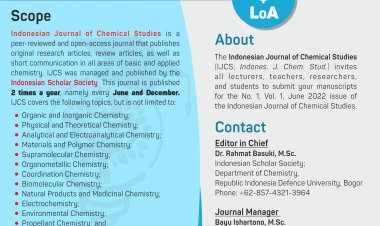
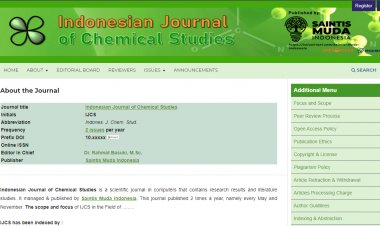
![[16 Feb 2024] Online Talks HKI JABAR BANTEN #17 – Tips dan Trik Pengelolaan Jurnal Nasional Kimia](https://solusiriset.com/uploads/images/202402/image_430x256_65bc631004d82.jpg)
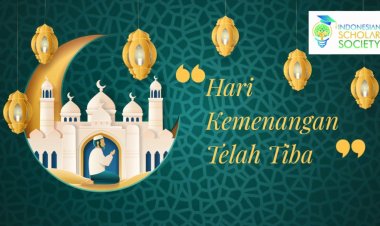
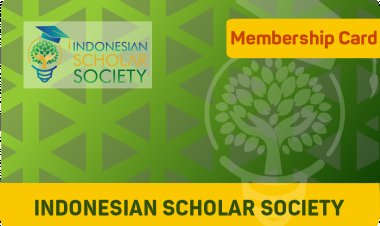
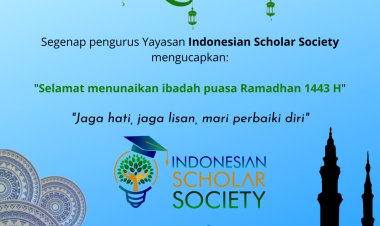
![[30 September 2025] SEARCA MS/PhD Scholarship Applications](https://solusiriset.com/uploads/images/202508/image_430x256_688c4df9697d0.jpg)

![[1- 31 Agustus 2025] RISET KESEHATAN PESANTREN](https://solusiriset.com/uploads/images/202507/image_430x256_687e3b9ecc796.jpg)
![[1–31 July 2025] SEARCA PhD Research Scholarship](https://solusiriset.com/uploads/images/202507/image_430x256_6864999cdbfb2.jpg)
![[Loker] SMA Islam Plus Adzkia](https://solusiriset.com/uploads/images/202504/image_430x256_68097a19a7125.jpg)
![[16 April – 5 Mei 2025] Rekrutmen Calon Dosen Tetap Universitas Airlangga Tahun 2025](https://solusiriset.com/uploads/images/202504/image_430x256_67ff6af9e27d5.jpg)
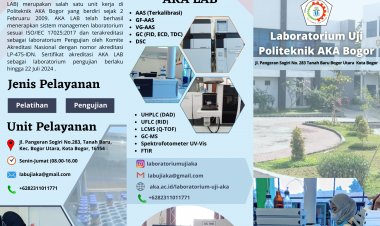
![[14 Mei 2025] Unlocking BRIN Research Grants: Peluang Pendanaan Riset Berkualitas untuk Dosen](https://solusiriset.com/uploads/images/202505/image_430x256_6821a7724a307.jpg)
![[Kesempatan Platinum | Deadline 31 Maret 2025] Lomba Riset Sawit Tingkat Mahasiswa 2025](https://solusiriset.com/uploads/images/202502/image_430x256_67ab0ecd2f43f.jpg)
![[Kesempatan Platinum | Deadline 28 Februari 2025] Open Innovation Tahun 2025 PT. Bumitama Gunajaya Agro (BGA)](https://solusiriset.com/uploads/images/202502/image_430x256_67ab09e11f64b.jpg)
![[15-16 Maret 2024] Bimtek Strategi Lolos Hibah BIMA Kemdikbud 2024](https://solusiriset.com/uploads/images/202403/image_430x256_65e9bdbfa7f49.jpg)
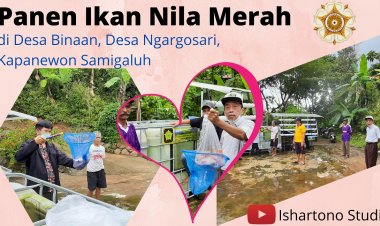



![[ 2, 9 dan 16 Agustus 2025 ] Pelatihan Terpadu Pengelolaan Jurnal Ilmiah Berbasis OJS 3.xx : Dari Setup hingga Indeksasi](https://solusiriset.com/uploads/images/202507/image_430x256_688750b4bd338.jpg)
![[17 Juli 2025] Seminar Nasional Memahami Harapan Reviewer Jurnal Internasional Bereputasi: Strategi Relevansi dan Framing](https://solusiriset.com/uploads/images/202507/image_430x256_68747395850be.jpg)
![[12 Mei 2025] WEBINAR KIAT PUBLIKASI JURNAL SCOPUS](https://solusiriset.com/uploads/images/202505/image_430x256_68209a3587023.jpg)
![[25 April 2025] PEMANFAATAN TOOLS UNTUK MEMBUAT ARTIKEL ILMIAH](https://solusiriset.com/uploads/images/202504/image_430x256_680acdf58c7ed.jpg)
![[20 Juli 2022] Werbinar memastikan referensi yang terbaik untuk paper terindeks scopus](https://solusiriset.com/uploads/images/202207/image_380x226_62d3a7ecf04fd.jpg)
![[30 April 2025] Webinar Cara Ampuh Membuat Method, Hasil, dan Pembahasan yang Bikin Reviewer Auto Malu-Malu Tapi Mau](https://solusiriset.com/uploads/images/202504/image_430x256_6808f007b7acc.jpg)
![[19 Maret 2025] Ngaji Jurnal The Series 4: Cara Ampuh Membuat Pendahuluan yang Tidak Bertele2 dan Mubazir](https://solusiriset.com/uploads/images/202503/image_430x256_67d9da95d3edb.jpg)
![[ 9 Maret 2025 ] Workshop Penulisan Artikel Untuk Publikasi dan Jurnal Internasional Terindeks Scopus](https://solusiriset.com/uploads/images/202503/image_430x256_67c59ff8a2b5b.jpg)
![[19 April 2025] Tata Kelola Jurnal dan Akreditasi Nasional](https://solusiriset.com/uploads/images/202504/image_430x256_67fd39321b23f.jpg)
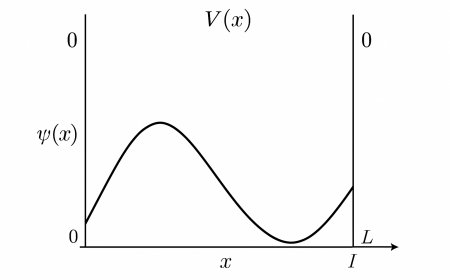
![[Download] Ebook Analisis Struktur Senyawa Organik Secara Spektroskopi](https://solusiriset.com/uploads/images/202404/image_430x256_6629a8114fba0.jpg)
![[Download] Ebook DASAR-DASAR SPEKTROFOTOMETRI UV-VIS DAN SPEKTROMETRI MASSA UNTUK PENENTUAN STRUKTUR SENYAWA ORGANIK](https://solusiriset.com/uploads/images/202404/image_430x256_662061825b260.jpg)
![[Download] Ebook Buku Ajar Pengantar Biokimia](https://solusiriset.com/uploads/images/202404/image_430x256_661e40c397565.jpg)
![[Download] SEMIOTICS THE BASICS SECOND EDITION by Daniel Chandler](https://solusiriset.com/uploads/images/202301/image_380x226_63c04f477e6ae.jpg)
![[Download] Ebook Longman Complete Course For the TOEFL Test](https://solusiriset.com/uploads/images/202301/image_380x226_63b596aec6468.jpg)
![[Ebook Biologi] Biologi Sel](https://solusiriset.com/uploads/images/202310/image_430x256_65248dc12f3cd.jpg)
![[Download] BSE Biologi SMA/MA Kelas X](https://solusiriset.com/uploads/images/202309/image_430x256_64fc9c665d649.jpg)
![[Download] Ebook Biologi Umum](https://solusiriset.com/uploads/images/202306/image_430x256_64844b2fd597e.jpg)
![[Download] Calculus (9rd Edition) by Dale Varberg, Edwin Purcell and Steve Rigdon](https://solusiriset.com/uploads/images/202301/image_380x226_63c051eb7581d.jpg)
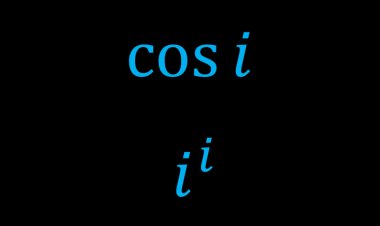
![[BILANGAN KAPREKAR] Keanehan Angka 6174](https://solusiriset.com/uploads/images/2022/03/image_380x226_6241ef9c630bc.jpg)
![[Download] Mathematical Methods in the Physical Sciences by Mary L. Boas](https://solusiriset.com/uploads/images/202309/image_430x256_64ff4a8e6dad0.jpg)
![[Download] BSE Fisika untk SMA/MA kelas X](https://solusiriset.com/uploads/images/202309/image_430x256_64fc9d95b3e8e.jpg)
![[DOWNLOAD] ELETRICITY AND MAGNETISM by Edward E. Purcell and David J. Morin](https://solusiriset.com/uploads/images/202301/image_380x226_63c0530830cb0.jpg)
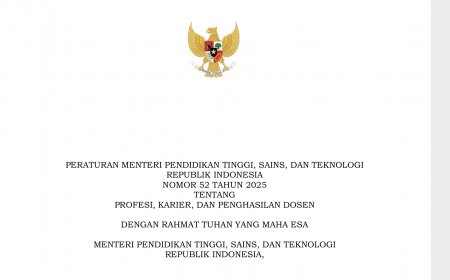

![[11 Oktober 2025] Webinar META-ANALYSIS: PONDASI, PROTOKOL SAMPAI TOOLS MODERN GRATIS](https://solusiriset.com/uploads/images/202510/image_430x256_68e8653d0db67.jpg)

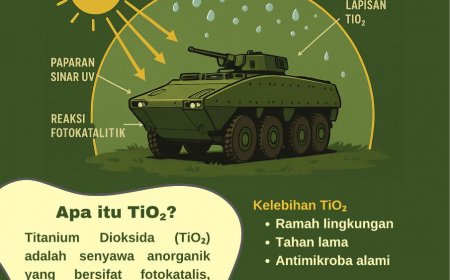
![[August 28th, 2025] In Situ X-ray Absorption Spectroscopy for Nanomaterials and Catalysis](https://solusiriset.com/uploads/images/202508/image_430x256_68a93bc6301a9.jpg)
![[14 Agustus 2025] Prinsip Dasar X-Ray Photoelectron Spectroscopy](https://solusiriset.com/uploads/images/202508/image_430x256_689c63024bd1d.jpg)
![[19 Agustus 2025] Webinar LC-HRMS Orbitrap: Transformasi Spektrometri Massa dan Aplikasinya di Metabolomik](https://solusiriset.com/uploads/images/202508/image_430x256_689bea4ee26b9.jpg)




![[02 Oktober 2024] Webinar Unlocking Inhibition of Pathogenic Fungi](https://solusiriset.com/uploads/images/202409/image_430x256_66f94ee6ed0de.jpg)
![[14 Oktober 2023] SEMINAR NASIONAL BIOLOGI Ke-5 FMIPA Universitas Mulawarman](https://solusiriset.com/uploads/images/202308/image_430x256_64e8394d5c3ab.jpg)
![[9 Agustus 2024] Webinar Cedera Olahraga dan Berbagai Metode Pengobatannya](https://solusiriset.com/uploads/images/202407/image_430x256_66a77cae33ab3.jpg)

![[4 Juli 2022] WORKSHOP NASIONAL KURIKULUM MERDEKA BELAJAR](https://solusiriset.com/uploads/images/202206/image_140x98_62bba7363355a.jpg)
![[26-30 Juni 2022] Optimalisasi Bahan & Media Pembelajaran dalam Kurikulum Merdeka Belajar | Gratiss 40 jp](https://solusiriset.com/uploads/images/202206/image_140x98_62b1ef93bc814.jpg)
![[3-7 Januari 2024 ] Diklat Nasional Mewujudkan Pembelajaran Menyenangkan dengan Kurikulum Merdeka](https://solusiriset.com/uploads/images/202312/image_140x98_658abb09f2cc2.jpg)
![[20 Juli 2022] WEBINAR GURU NASIONAL | GRATIS 32 JP](https://solusiriset.com/uploads/images/202207/image_140x98_62c5c6de49fa2.jpg)
![[21 Feb 2026] Founder’s Playbook Webinar by MGPreneur](https://solusiriset.com/uploads/images/202602/image_140x98_69948ccee04e8.jpg)
![[19-20 Juni 2026] The 3rd International Conference on Chemistry & Chemistry Education (IC3E 2026)](https://solusiriset.com/uploads/images/202602/image_140x98_69948bd7ec24f.jpg)
![[2-6 Maret 2026] Pelatihan Pemodelan Dispersi Udara: Aermod, Calpuff, & Hysplit](https://solusiriset.com/uploads/images/202602/image_140x98_698ab9488c065.jpg)
![[15-16 April 2026] The Indonesian Conference on Chemical Analysis and Instrumentation (ICCAI) 2026](https://solusiriset.com/uploads/images/202602/image_140x98_698ab70aef6c9.jpg)
